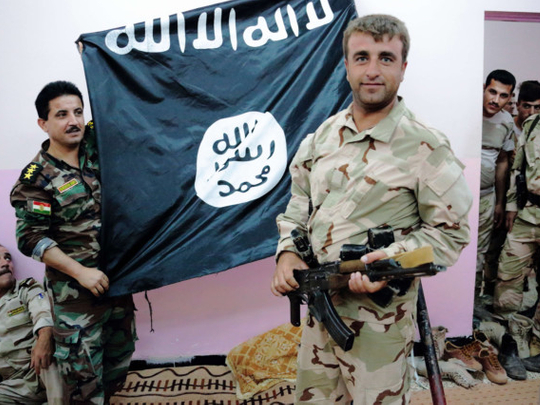
Baghdad: An international rights group called Sunday for an investigation into an Iraqi airstrike on a school housing displaced families that killed 31 civilians, including 24 children, a day after the country’s new prime minister ordered the army to stop shelling militant-held populated areas to minimize civilian casualties.
New York-based Human Rights Watch said in a statement that the Sept. 1st airstrike took place in the town of Al Alam, just outside the northern city of Tikrit, which was captured by the Islamic State of Iraq and the Levant (Isil)in June. The statement said 41 other people were wounded.
Three survivors, interviewed by HRW by phone, said the school sheltered about 70 people from the extended Jurefat family, who had been there for two months after fleeing Tikrit. They said that there were no militants or military equipment in or near the school at the time of the attack.
Iraqi officials were not immediately available for comment, but the report cited the Iraqi government as saying that the pilot had targeted a car driving near the school that was thought to be transporting fighters and explosives, causing an explosion that was “far larger than normal.”
HRW special adviser Fred Abrahams said Isil “is incredibly brutal, but that’s no excuse for what the Iraqi government is doing.” He called on Iraq’s allies in the fight against the militants “to put pressure on Baghdad to stop this kind of violence.”
On Saturday, Iraq’s newly-appointed Prime Minister Haider Al Abadi ordered the security forces to stop shelling populated areas held by militants in order to spare the lives of “innocent victims” as the armed forces struggle to retake cities and towns seized by Isil since early this year.
He accused the militants of using civilians as a human shield to stop the advance of Iraqi security forces. But he vowed to continue military operations against the Al Qaida breakaway group, which seized much of northern and western Iraq in an unprecedented June offensive.
The army’s heavy-handed tactics have long fueled anger among the country’s Sunni minority, leading many to welcome the insurgents as liberators when they swept into Sunni-majority areas earlier this year. The Shiite-led government is under mounting pressure from the international community to reach out to both Sunnis and Kurds in order to form a united front against the militant onslaught.
Since Aug. 8, the US has carried out more than 100 strikes using aircraft and unmanned drones. The American military has focused mainly on areas bordering the largely autonomous northern Kurdish region, where Kurdish forces have been fighting the militants, as well as strategic areas like dams.
The latest two airstrikes on Friday targeted Isil militants near the Mosul Dam, the US military said. US Central Command said the strikes destroyed a mortar emplacement and an armed vehicle, and brought the total number of strikes to 160 across Iraq since the military campaign began.












